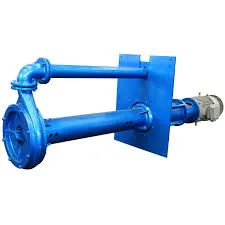English
- Afrikaans
- Albanian
- Amharic
- Arabic
- Armenian
- Azerbaijani
- Basque
- Belarusian
- Bengali
- Bosnian
- Bulgarian
- Catalan
- Cebuano
- Corsican
- Croatian
- Czech
- Danish
- Dutch
- English
- Esperanto
- Estonian
- Finnish
- French
- Frisian
- Galician
- Georgian
- German
- Greek
- Gujarati
- Haitian Creole
- hausa
- hawaiian
- Hebrew
- Hindi
- Miao
- Hungarian
- Icelandic
- igbo
- Indonesian
- irish
- Italian
- Japanese
- Javanese
- Kannada
- kazakh
- Khmer
- Rwandese
- Korean
- Kurdish
- Kyrgyz
- Lao
- Latin
- Latvian
- Lithuanian
- Luxembourgish
- Macedonian
- Malgashi
- Malay
- Malayalam
- Maltese
- Maori
- Marathi
- Mongolian
- Myanmar
- Nepali
- Norwegian
- Norwegian
- Occitan
- Pashto
- Persian
- Polish
- Portuguese
- Punjabi
- Romanian
- Russian
- Samoan
- Scottish Gaelic
- Serbian
- Sesotho
- Shona
- Sindhi
- Sinhala
- Slovak
- Slovenian
- Somali
- Spanish
- Sundanese
- Swahili
- Swedish
- Tagalog
- Tajik
- Tamil
- Tatar
- Telugu
- Thai
- Turkish
- Turkmen
- Ukrainian
- Urdu
- Uighur
- Uzbek
- Vietnamese
- Welsh
- Bantu
- Yiddish
- Yoruba
- Zulu
Telephone: +86 13120555503
Email: frank@cypump.com
Oct . 11, 2024 00:41 Back to list
slurry suction pump
Understanding Slurry Suction Pumps A Comprehensive Overview
Slurry suction pumps play a critical role in various industrial sectors, including mining, construction, and wastewater treatment. These specialized pumps are designed to handle slurries, which are mixtures of liquids and solids. Due to the abrasive nature of slurry materials, these pumps are engineered to withstand harsh conditions and deliver effective performance.
What is a Slurry Suction Pump?
A slurry suction pump is a type of centrifugal pump specifically designed for transporting abrasive slurries. Its construction differs significantly from standard pumps it features a robust design with wear-resistant materials and an oversized impeller to accommodate the thick consistency of slurries. Unlike conventional pumps, slurry pumps can handle high concentrations of solids, making them indispensable in industries where the removal of solid waste is essential.
Key Components and Design
The main components of a slurry suction pump include the impeller, volute casing, shaft, and various seals and bearings. The impeller is typically made from hard metal alloys or rubber to provide durability against erosion and wear. The volute casing is designed to minimize turbulence and maintain efficient flow dynamics, ensuring that the slurry can be transported with minimal energy loss.
Additionally, slurry pumps often come with features like hydraulic performance optimization to maximize the flow rate and head. These enhancements are crucial for applications that require moving large volumes of slurry over significant distances.
Applications of Slurry Suction Pumps
Slurry suction pumps are prevalent in numerous applications
1. Mining In mining operations, these pumps are used to transport ore slurry, which consists of finely crushed minerals mixed with water. Slurry pumps facilitate the separation and processing of valuable minerals from waste material.
slurry suction pump

2. Construction In construction sites, slurry pumps help in the removal of thick mixtures of cement, sand, and water. They are essential in dewatering operations, allowing for a dry site and safer working conditions.
3. Wastewater Treatment Slurry pumps are utilized in the wastewater treatment industry to transport sludge and other solids from the treatment process. This function is critical for maintaining efficient operations and ensuring that wastewater is treated effectively.
4. Dredging In dredging operations, these pumps are used to remove sediment and debris from the bottom of waterways. They ensure that channels remain navigable and prevent sediment buildup, which can hinder aquatic transport.
Benefits of Using Slurry Suction Pumps
The advantages of slurry suction pumps are evident in their efficiency and performance
- Durability Built to withstand harsh and abrasive materials, these pumps have a longer lifespan compared to standard pumps, which translates to lower maintenance costs.
- High-Performance Slurry pumps are engineered to provide consistent flow, even under challenging conditions. Their design minimizes wear and can handle varying solid concentrations effectively.
- Versatility With various construction materials and designs, slurry suction pumps can be customized for specific applications, making them suitable for diverse industries and fluids.
In conclusion, slurry suction pumps are vital components in many industrial operations. Their ability to efficiently transport slurries makes them indispensable in applications ranging from mining to wastewater treatment. Investing in high-quality slurry pumps can lead to improved operational efficiency, reduced downtime, and long-term cost savings. As industries evolve, the importance and technology of slurry suction pumps will continue to grow, adapting to meet new challenges in fluid handling.
-
Horizontal Split Case Pump with GPT-4 Turbo | High Efficiency
NewsAug.01,2025
-
ISG Series Pipeline Pump - Chi Yuan Pumps | High Efficiency, Durable Design
NewsAug.01,2025
-
Advanced Flue Gas Desulfurization Pump with GPT-4 Turbo | Durable & Efficient
NewsJul.31,2025
-
ISG Series Vertical Pipeline Pump - Chi Yuan Pumps | Advanced Hydraulic Design&Durable Construction
NewsJul.31,2025
-
ISG Series Vertical Pipeline Pump - Chi Yuan Pumps | Energy Efficient & Low Noise
NewsJul.31,2025
-
pipeline pump - Chi Yuan Pumps Co., LTD.|High Efficiency&Low Noise
NewsJul.31,2025










